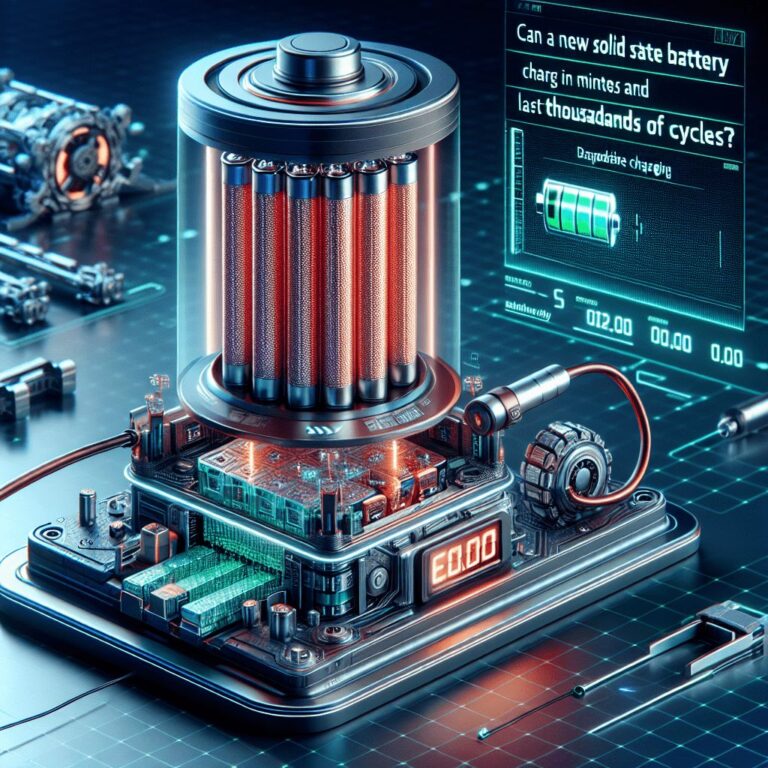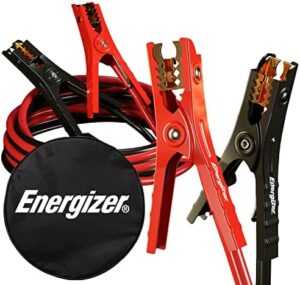In a world where technology is rapidly evolving, one of the most crucial aspects we strive to improve is the battery life of our electronic devices. Countless research and development efforts have been made to enhance the efficiency and longevity of batteries. In recent years, the emergence of solid-state batteries has brought about a groundbreaking solution to this everlasting predicament. This article explores the revolutionary strides made in the field, focusing on new solid-state battery technology that charges in minutes and lasts for thousands of cycles.
Understanding Solid-State Batteries
Solid-state batteries represent a significant breakthrough in energy storage technology. Unlike traditional lithium-ion batteries, these new batteries do not rely on liquid electrolytes. Instead, they utilize solid materials as both the electrolyte and the anode, offering several advantages over their liquid counterparts.
One of the primary benefits of solid-state batteries is their high energy density, enabling them to store more energy within a smaller volume. Moreover, their improved safety features make them less prone to fire hazards caused by thermal runaway, which has been a critical concern associated with conventional batteries.
High-Speed Charging
One of the most noteworthy achievements of the new solid-state battery technology is its ability to charge at an unprecedented speed. Unlike conventional batteries that require hours to reach full capacity, these new batteries can be fully charged in a matter of minutes. This breakthrough allows users to spend less time waiting for their devices to charge and more time enjoying their use. Whether it’s smartphones, electric vehicles, or other portable electronic devices, high-speed charging is a game-changer that addresses a long-standing consumer pain point.
Long Cycles and Extended Lifespan
Another critical advantage of solid-state batteries is their prolonged lifespan. These innovative batteries can endure thousands of charging cycles without significant degradation in performance. Traditional lithium-ion batteries often experience a decline in capacity after a few hundred cycles, leading to reduced battery life over time. With new solid-state batteries, this concern is effectively mitigated, offering consumers a long-lasting power solution. Additionally, the extended lifespan of these batteries makes them ideal for applications that require frequent charging, such as electric vehicles.
Environmental Impact and Sustainability
The advancements in solid-state battery technology also have a positive impact on the environment. Traditional lithium-ion batteries contain toxic materials and rely on the extraction of finite resources such as cobalt, which is known to have detrimental effects on both human health and the planet. In contrast, solid-state batteries utilize more sustainable and eco-friendly materials that are not only abundant but also less harmful to the environment. This shift towards greener energy storage solutions aligns with the global efforts to reduce carbon emissions and combat climate change.
Frequently Asked Questions (FAQ)
1. Can solid-state batteries be used in existing devices?
Solid-state batteries have the potential to be used in existing devices, but their adoption may require some modifications in terms of design and compatibility. As this technology continues to evolve, manufacturers are actively working on integrating solid-state batteries into various electronic devices.
2. Are solid-state batteries expensive?
Initially, solid-state batteries may be more expensive than their traditional counterparts due to the new manufacturing processes involved. However, as the technology matures and mass production becomes more widespread, the cost is expected to decrease, making it more viable for commercial use.
3. Are solid-state batteries safe?
Yes, solid-state batteries are considered safer than traditional lithium-ion batteries. The absence of liquid electrolytes significantly reduces the risk of thermal runaway and potential fire hazards. However, it is important to note that extensive testing and regulatory approvals are crucial to ensure the highest safety standards.
4. Can solid-state batteries be recycled?
Yes, solid-state batteries can be recycled. The process involves extracting valuable materials, such as lithium and other metals, for reuse. Recycling solid-state batteries contributes to resource conservation and reduces electronic waste.
5. When will solid-state batteries be widely available?
While solid-state batteries are still undergoing research and development, several companies have made significant progress. Commercial availability is anticipated in the next few years, with electric vehicles being one of the first industries to benefit from this technology.
The advent of new solid-state battery technology has brought us closer to a future where long-lasting and fast-charging batteries are the norm. The immense potential of these batteries in terms of high-speed charging, long cycling life, and environmental sustainability has caught the attention of both consumers and manufacturers. As research and development continue to push the boundaries of solid-state battery technology, we eagerly await a world where our devices effortlessly meet our power demands without compromising convenience or the environment.


